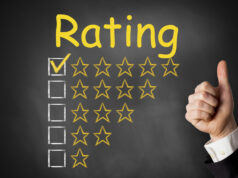As a business owner, you may find yourself weighing whether or not to refinance your business loan. Refinancing involves taking out a new loan to pay off an existing one, which allows you to adjust the interest rate, monthly payments, or other terms of the loan. Determining the right time to refinance requires careful consideration of market conditions and your business’s financial situation.
Lower Interest Rates
One of the main reasons to refinance a business loan is to take advantage of lower market interest rates. The Federal Reserve’s actions influence interest rates economy-wide, so if rates have fallen since you took out your original loan, refinancing could allow you to lock in a lower rate. It reduces your interest expenses over the life of the loan, saving you money. Monitor prime rates, which many small business loans are pegged to, and refinance when they have dropped significantly.
Improved Credit Score
Lenders use your business and personal credit scores to set interest rates on loans. The higher your credit score, the lower the rate you can qualify for, since you are seen as a lower credit risk. If your credit score has increased notably after getting your first loan, considering options where companies like CreditNinja refinance your loans could potentially lead to securing a lower interest rate, ultimately saving money over the loan term. Before applying, check both your personal and business credit reports to ensure your scores are higher.
Stronger Business Finances
If your business’s revenue and profits have increased substantially since you first borrowed, refinancing can also lead to a lower interest rate. Improved finances mean your business looks less like a risk to lenders. With a reduced risk of default, lenders are willing to offer lower rates. Before refinancing, compile current financial statements and projections to share with lenders and demonstrate your business’s strengthened position.
Beyond Interest Rates
While interest rates are a major factor, refinancing can also provide additional benefits. You may want to adjust the loan term to better align with your projected cash flows. Consolidating multiple loans into one through refinancing can streamline recordkeeping and simplify managing monthly payments. Determine your goals beyond interest rates before deciding to refinance.
When to Wait
Despite the potential benefits, refinancing does come with costs like fees and closing costs. It can also reset the clock on your loan term. As such, refinancing may not always be the best move.
If interest rates have risen since you obtained your original loan, refinancing is unlikely to save you money. Also, avoid refinancing if your business finances have weakened or your credit score has dropped. You may no longer qualify for attractive rates.
Finally, if you are close to paying off your current loan, the costs of refinancing likely outweigh any minor interest savings from a new loan. At that point, stay the course and pay off the existing loan.
The Bottom Line
Analysing market conditions, your credit standing, and your business’s financial position can help determine if the timing is right to refinance your business loan. Seeking to reduce interest rates or achieve other financial goals is a solid motivation as long as the numbers make sense. With proper timing and understanding of the pros and cons, refinancing can optimise your business financing.








